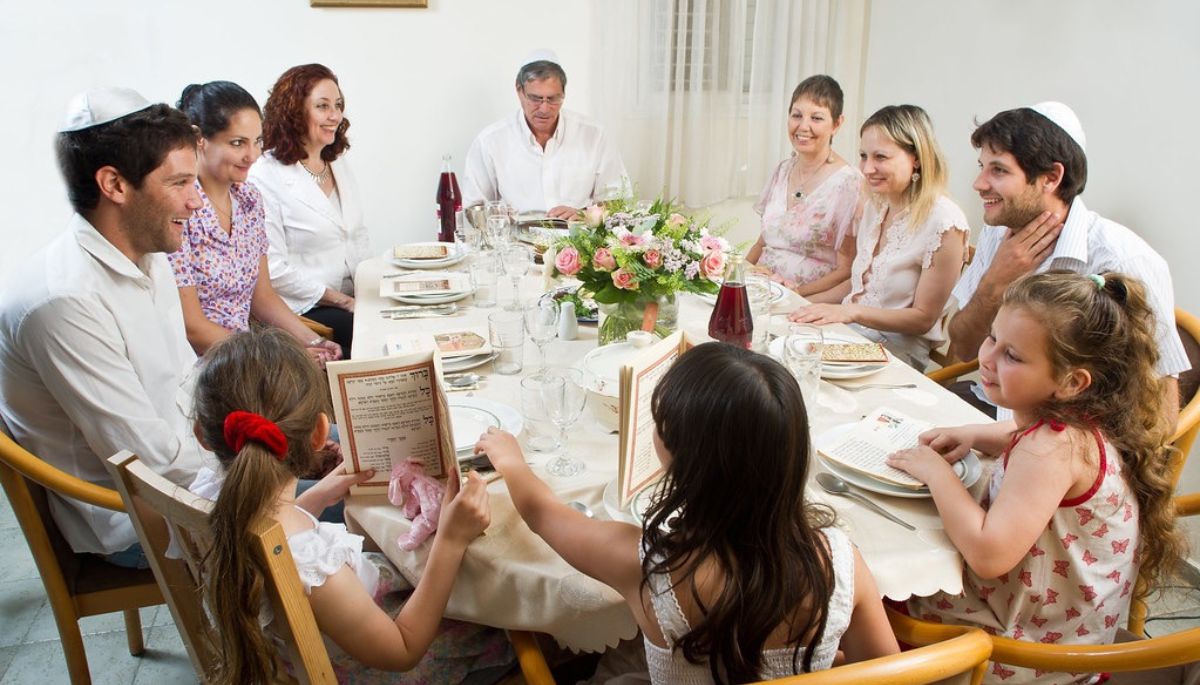
Passover 2024 began at sundown on Monday, April 22nd and ends on the evening of April 30th. This eight-day festival is one of the most significant holidays in Judaism, commemorating the Israelites’ liberation from slavery in ancient Egypt as recounted in the Hebrew Bible.
What Is Passover ?
Passover is a festival of Freedom .
Passover, also known as Pesach (pronounced PEH-sach) in Hebrew, is a major Jewish holiday commemorating the Israelites’ liberation from slavery in ancient Egypt. It’s a week-long festival steeped in tradition, symbolism, and a powerful message of freedom.
Passover marks the pivotal moment when the Israelites, after enduring centuries of harsh bondage under the Egyptian Pharaoh, finally achieved freedom. The story, retold in detail during Passover, narrates how Moses, acting as God’s messenger, confronted Pharaoh, demanding the release of his people. When Pharaoh refused, a series of devastating plagues struck Egypt, culminating in the death of the firstborn sons of every Egyptian household. To protect the Israelites, God instructed them to mark their doorways with lamb’s blood, a sign that would allow the “Destroyer” to “pass over” their homes. This act of distinction is where the holiday’s name originates – Passover.
What are some Passover practices?
Passover is observed through a variety of practices, both central to the holiday and aimed at enriching the experience. Here are some of the key practices:
Core Observances:
- The Seder Meal: This ritualized feast is the centerpiece of Passover. Families gather to read the Haggadah, partake in symbolic foods from the Seder plate, and reflect on the story of Exodus.
- Eating Matzah: Unleavened bread replaces leavened products throughout Passover. Matzah symbolizes the bread the Israelites couldn’t let rise before fleeing Egypt.
- Avoiding Chametz: For the duration of Passover, Jews abstain from all leavened foods, including bread, pasta, and certain grains. This commemorates the haste of the Exodus.
Preparatory Practices:
- Cleaning for Passover: Homes undergo a thorough cleaning to eliminate all traces of chametz. This meticulous process ensures no leavened products remain before the holiday.
- Preparing Special Foods: In the absence of leavened products, Passover necessitates preparation of special alternatives. This includes matzah dishes, special cakes, and unique desserts.
Additional Practices:
- Fasting of the Firstborn: Some families observe a fast on the eve of Passover for the firstborn child, symbolically sharing the experience of the Israelites before the final plague.
- Passover Study: In-depth study of the Haggadah and the themes of Passover enriches the understanding and appreciation of the holiday.
- Community Gatherings: Passover Seders are often open to extended family and friends, fostering a sense of community and shared celebration.
These practices combine to create a rich and meaningful Passover experience. From the core rituals to the traditions and customs, they all serve to remember the Israelites’ liberation, celebrate freedom, and reaffirm the values of faith and resilience.
What foods do we eat on Passover 2024?
Passover has some specific restrictions and guidelines around food due to the focus on the Israelites’ hurried escape from Egypt and the unleavened bread they were able to bring with them. Here’s a breakdown of what you can eat during Passover:
Foods Permitted for Passover:
- Matzah: The star of the show! Matzah is the unleavened flatbread that represents the bread the Israelites couldn’t let rise during their flight. It’s eaten throughout Passover and is a central part of the Seder meal.
- Meat and Poultry: Kosher meat, poultry, and fish are all permitted during Passover as long as they are prepared according to kosher guidelines.
- Eggs: Eggs are a welcome addition to the Passover table and are often used in various dishes and desserts.
- Fruits and Vegetables: All fresh fruits and vegetables are permissible on Passover.
- Legumes: Depending on tradition, some Ashkenazi Jews (of Central and Eastern European descent) avoid legumes (beans, lentils, peas) during Passover. Sephardic and Mizrahi Jews (of Middle Eastern and North African descent) typically permit them.
- Nuts and Seeds: Most nuts and seeds are allowed on Passover, though some may require checking for processing with chametz (leavened products).
- Special Passover Products: A wide variety of specially prepared Passover products are available, including matzah meal for baking, Passover crackers, and special flours made from permitted grains like potato starch.
Foods to Avoid During Passover:
- Chametz: This refers to all leavened products, including bread, pasta, crackers, cereals, and baked goods made with wheat, barley, spelt, oats, and rye.
- Kitniyot (Some Traditions): Some traditions, particularly among Ashkenazi Jews, restrict kitniyot during Passover. Kitniyot are legumes, corn, rice, and certain seeds. These grains and seeds were not commonly eaten as grains back in biblical times, so some interpretations avoid them during Passover to eliminate any confusion with chametz.
Planning Your Passover Meals:
- Many delicious and creative Passover recipes exist to ensure a satisfying and enjoyable holiday experience.
- Consider your family’s traditions regarding kitniyot.
- Stock up on matzah, vegetables, fruits, and other permitted foods.
- Explore Passover-friendly recipe options online or in cookbooks.
By following these guidelines and exploring the vast options available, you can enjoy a delicious and meaningful Passover celebration.





